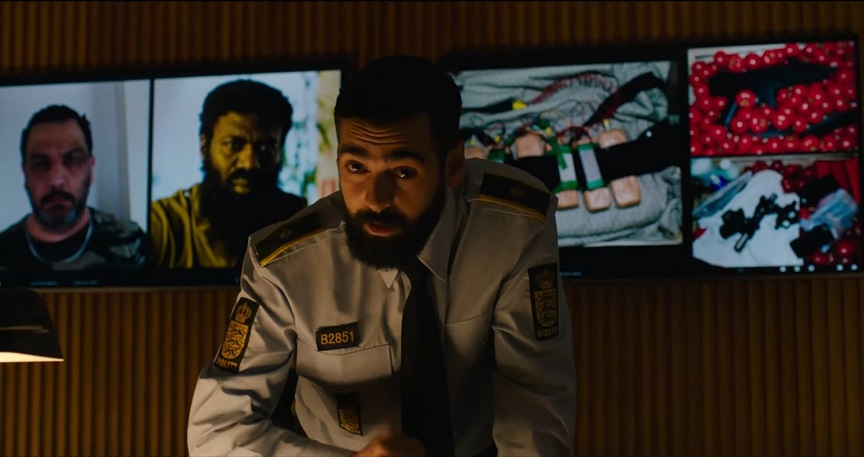SOME TWEETS & REVIEWS OF 'DOMINO' - ARMOND WHITE, GLENN KENNY, SCOTT TOBIAS, ETC.
 The headline above comes via a tweet from Walter Przybylowski: "De Palma’s Domino is a moviedream about our global nightmare. Colorful set-pieces punctuated by De Palma’s wry sense of fate—justice and vengeance are smartly conflated to better illustrate our current confused political/moral moment."
The headline above comes via a tweet from Walter Przybylowski: "De Palma’s Domino is a moviedream about our global nightmare. Colorful set-pieces punctuated by De Palma’s wry sense of fate—justice and vengeance are smartly conflated to better illustrate our current confused political/moral moment."Armond White similarly refers to De Palma's "subconscious cineaste references" intruding "on the global nightmare," and to Domino as "commendably short and astute, like a dream of [De Palma's] great films." White's review of Domino, posted early this morning at National Review, carries the headline, "De Palma Regains His Power with Domino." Here's an excerpt:
This is a second-tier, non-event film (a commendable rejuvenation for De Palma), and its brisk narrative moves as if on impulse. De Palma’s mastery of pace and composition makes the briefest image and sharpest edit count. When Christian confronts Ezra, their initial alarm is conveyed through European/African facial contrasts — film noir close-ups burning with sociological dread — that, thanks to cinematographer José Luis Alcaine, raise the movie’s temperature. Each character’s desperation and personal motivation are vivid; the global nightmare is conveyed with such quick efficiency that Domino plays like a B-movie dream of a great De Palma film. (The media’s hostility toward it suggests that Domino — which dares pinpoint Islamic terrorism — isn’t PC enough.)For various reasons owing to our political and moral disorientation, it seems impossible for contemporary American filmmakers to deal with national or global crises. (Note that Domino’s non-American cast mostly speaks in American idioms.) But De Palma’s formidable technique helps him puzzle out this artistic dilemma ahead of his peers. His signature use of split screens throughout Domino shows such assurance and depth that it relays our split moral consciousness. Domino proves that De Palma’s relation to new media includes coming to terms with the horror of ISIS beheading videos — the new media depersonalization that is inseparable from the private commemoration in cellphone photo swipes and facial-recognition technology that destroys all privacy. That concern animates every scene. It’s total illumination of our digital-age crisis.
De Palma’s 2007 film Redacted was a predictably sour retort to George Bush’s continuation of the Iraq War. De Palma couldn’t get over the cynicism he developed in the countercultural Sixties, and his knee-jerk liberalism forced him to shortchange his sympathy with the film’s soldier characters, unforgivably showing them as moral criminals. With screenwriter Petter Skavlan, DePalma’s Domino premise updates Eisenhower’s 1950s domino theory so that the warning against Communism’s spread becomes an allegory for this century’s spread of rampant, even murderous, incivility.
In this way, Domino responds to the post-9/11 political malaise (as well as professional difficulties) that caused De Palma’s artistic slump. That he eventually equates Islamic terrorism to common human vengeance reveals his unfortunate, facile cynicism. Australian actor Guy Pearce plays a bad Yankee CIA agent whose exit line is as trite as his villainous Southern accent: “We’re Americans; we read your emails.” This juvenile political streak is at odds with Domino’s most movingly humane and cinematic moments: A road-movie motif from Godard’s Made in U.S.A., a cliff-hanger motif from Hitchcock’s Vertigo, and a harrowing, self-mocking film-festival red-carpet motif from De Palma’s last great film, Femme Fatale.
These subconscious cineaste references intrude on the global nightmare as evidence that De Palma himself — unlike most recently weaponized pop-culture figures — might be rethinking the cultural decline that has become unmistakable in our politics, but especially in our media habits. That’s Domino’s real theme.
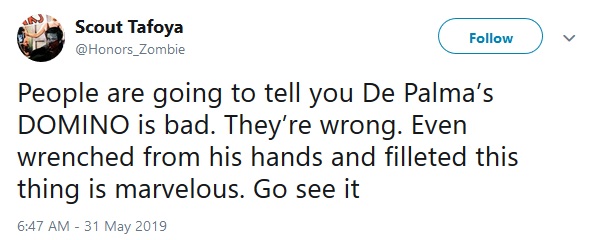
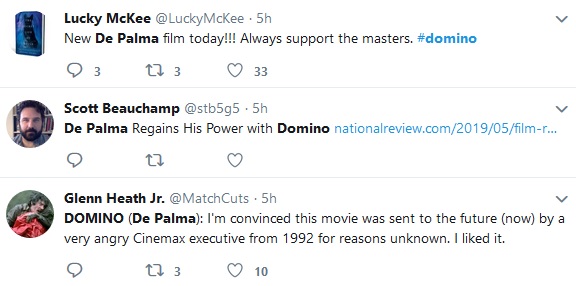
Glenn Kenny, New York Times
‘Domino’ Review: All Voyeurism, All the Time
"In Brian De Palma’s new film, a personal revenge story line is subsumed by horrific visions of television-friendly acts of terror."
The Copenhagen cop Christian (Nikolaj Coster-Waldau) is a pleasant fellow but not a terribly good police officer. Leaving his apartment to go on an early morning shift with his partner and pal Lars (Soren Malling), and distracted by the nude woman trying to get him to stay, Christian forgets to take his gun with him. Later, at a crime scene — a grisly torture-murder — he borrows his partner’s gun. This allows the fearsomely bearded suspect, Ezra (Eriq Ebouaney), to fatally assault that partner. During a rooftop chase that looks like the opening of Hitchcock’s “Vertigo” reimagined as a vintage Doublemint gum ad, Christian manages to lose the borrowed weapon, too.Under other circumstances, the director, Brian De Palma, might have squeezed some mordant humor out of his protagonist’s ineptitude. De Palma’s career took off with the paranoid comedies “Greetings” and “Hi, Mom!” five decades back, and his filmography has encompassed horror, crime and other genres, all delivered with a sardonic edge. Even blockbuster exercises such as “Mission: Impossible” (1996) managed an acerbic undercurrent.
But “Domino,” arriving here after the director complained in at least one interview about the way the film’s producers treated him, isn’t all that unified with respect to the values it contains and excludes.
The movie shows almost no interest in a personal payback plot (the script is by Petter Skavlan), even after Christian is joined by Alex (Carice van Houten), who was closer to Lars than poor Christian is able to guess. As for Ezra, he’s nabbed by the glib C.I.A. chess master Joe Martin (Guy Pearce, having some fun) and compelled to continue killing. Shaving both his beard and his head, Ezra tracks the same jihadists that Christian and Alex find themselves pursuing.
And what jihadists they are. One of them has a machine-gun-mounted video camera with sensors recording both the shooter in close-up and the victims, and feeding the images to a split-screen display. The scene in which she takes the weapon/camera ensemble to the Netherlands Film Festival is quite a set piece.
De Palma can’t realize all the elaborate effects he clearly wanted (the film’s climax occurs at a bullfight that’s conspicuously not crowded). But his direction often compensates with B-movie energy, particularly when he’s able to concentrate on his perverse vision. The death-dealing, all-voyeurism-all-the-time world that De Palma has been imagining in some form or another since the late ’60s, has, he recognizes, finally come into actual being, and it’s worse than he, or anyone, ever imagined. At times during “Domino,” the director seems practically giddy about it.
Rated R for language, themes, violence, a paranoid vision of the world come true.
Scott Tobias, NPR
Terrorism Is Filmmaking In Brian De Palma's 'Domino'
Now, De Palma has been issuing warnings about his new film Domino, a Danish production that he claims didn't originate with him and was the most horrible movie set he has ever experienced. And plenty of evidence of a patch job is on display here, especially as the film actively yawns its way through a muddled plot about the conflict between Danish police and the CIA over an ISIS mastermind. It is both thrillingly and painfully obvious which sequences pique De Palma's interest and which ones don't, but fans of the director's work might be surprised by how much of his sensibility survives intact.Always an underrated satirist, De Palma locks into the concept of terrorist-as-filmmaker and the careful staging and orchestration that goes into turning beheadings and suicide bombings into propagandistic art. With cameras attached to machine guns and remote-controlled drones, and earpieces distributed among his crew, ISIS leader Salah Al Din (Mohammed Azaay) is not much different from Francis Ford Coppola sitting in front of a bank of monitors in his trailer on One From the Heart, issuing directives to his cast and crew. For De Palma, the movies can be a deadly art.
Greg Cwik, MUBI
Only Brian De Palma would care so much about the filmmaking techniques of a terrorist group. As with the “Be Black, Baby” scene in Hi, Mom!, the use of cameras and camera angles in Snake Eyes, and the vérité style of Redacted, De Palma is most fascinated here by the use of media as a tool for communication, the visual arts as a weapon. Passion, one of his most concupiscent films,was the first film De Palma made in the age of social media, and technology/social media played an integral role in the narrative, and again, in Domino, social media has the potential to be poisonous, to be propaganda. The phone-as-camera also features prominently in both films. (One thinks of the teenage De Palma avatar in Dressed to Kill uses technology to figure out who killed his mother, or Travolta’s sound man creating a film to solve a murder.) At his best, De Palma is the consummate trash man, crafting out of puerile material some of the most delirious images in American movies. His characters have met untimely ends in high school gymnasiums, in elevators, at boxing matches; his victims and maladaptives are chopped up, maimed, shot, stabbed, immolated, electrocuted, exploded by telekinesis. In Domino, De Palma has fun with a lethal camera drone, which is one of the most on-brand things the filmmaker has ever done. Movies have the power to propagandize, and they have the power to kill.
Updated: Saturday, February 24, 2024 1:35 PM CST
Post Comment | View Comments (22) | Permalink | Share This Post




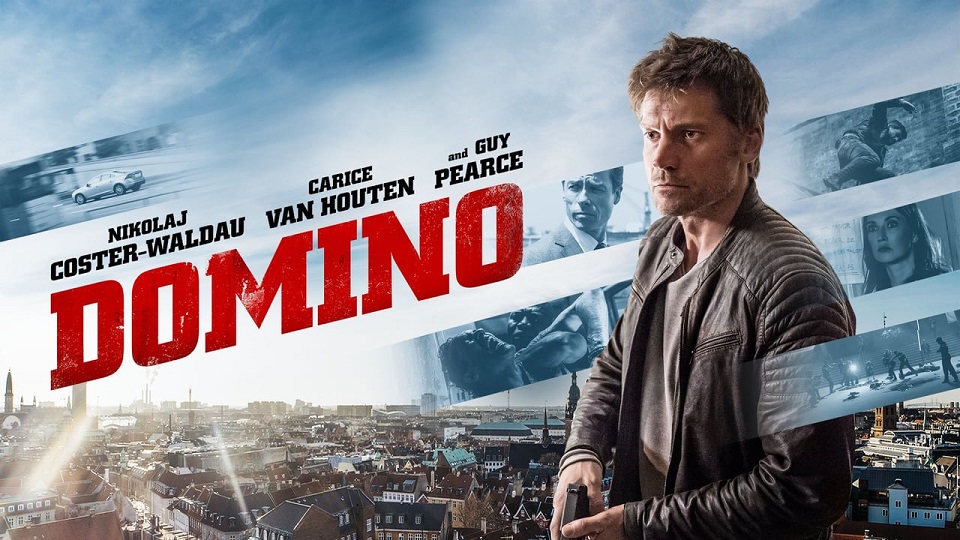
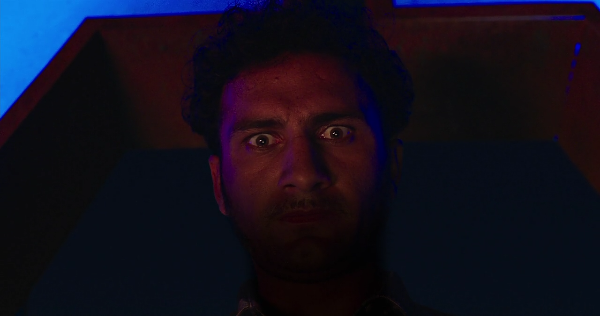
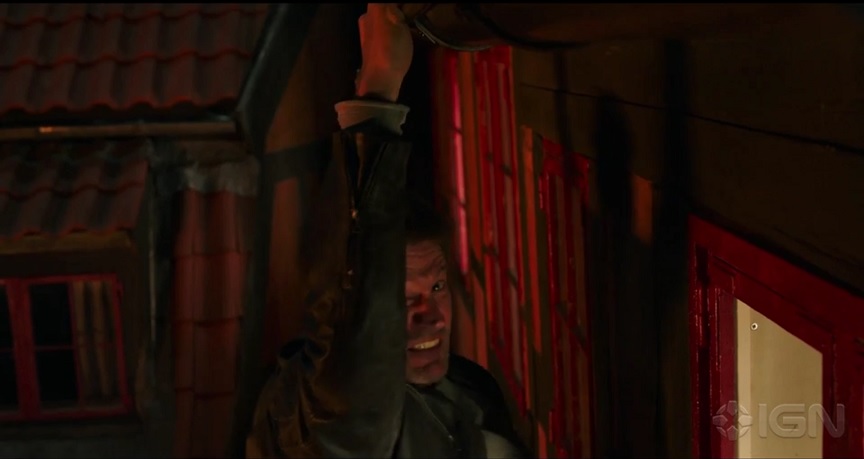
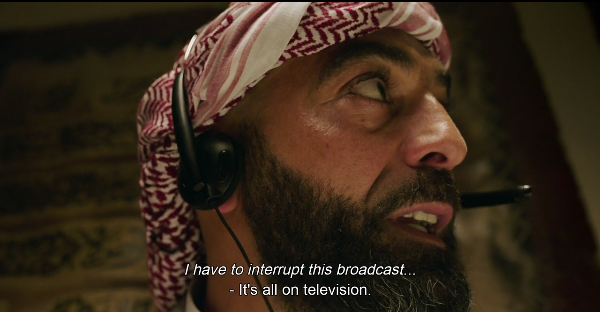
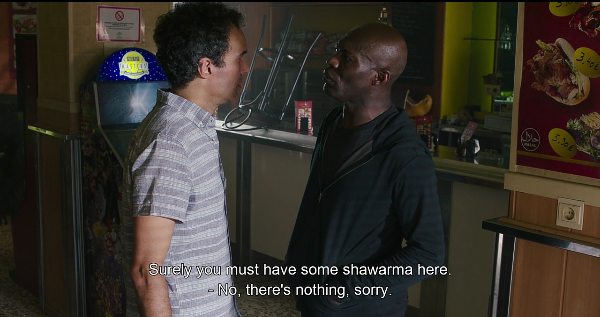

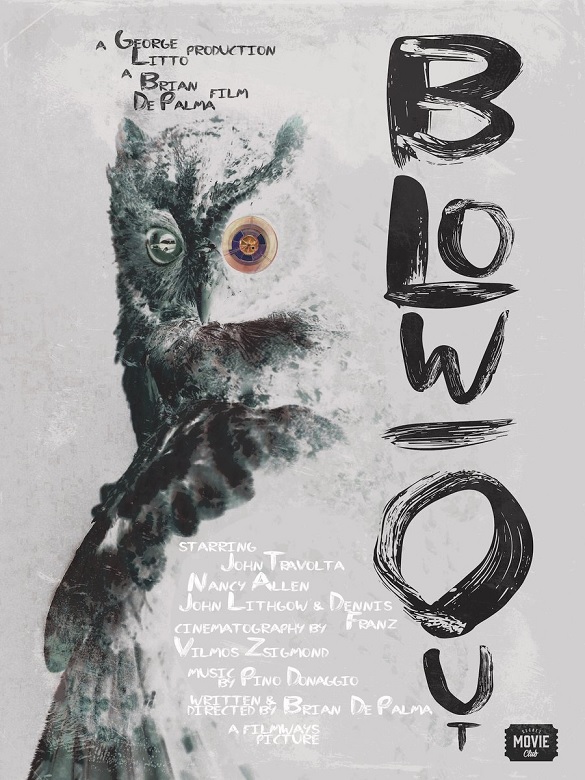 Brian De Palma's Blow Out will screen from a 35mm print at midnight Saturday, May 25th, as part of the
Brian De Palma's Blow Out will screen from a 35mm print at midnight Saturday, May 25th, as part of the 
